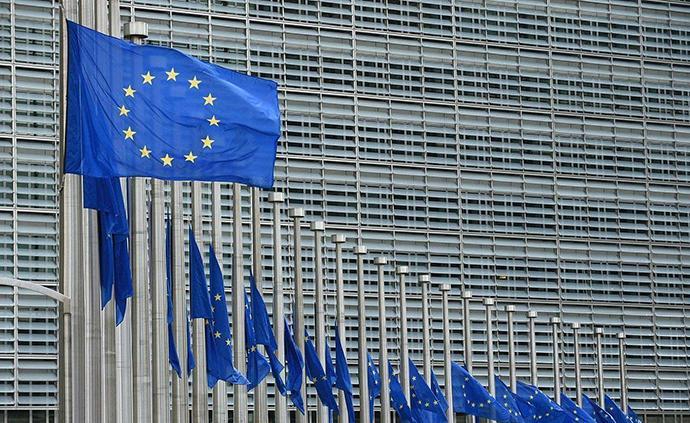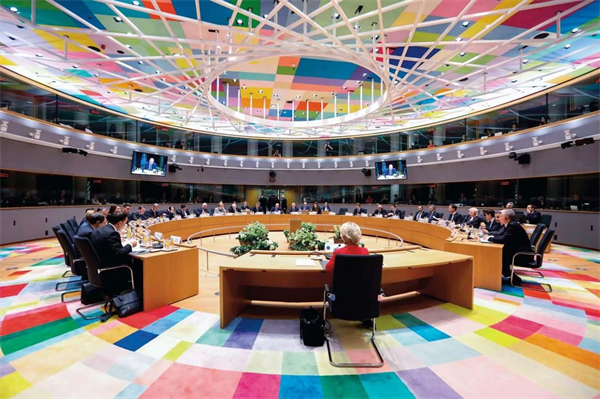
If the Russia-Ukraine conflict has changed the geopolitical security structure of Europe, leaving European countries suffering from inflation, energy shortages, and the influx of refugees, then the Palestinian-Israeli conflict is tearing European societies apart, forcing European governments and citizens to "choose sides," and spilling a series of headaches for the EU and national governments. Especially after attacks by radical extremists in France and Belgium, EU interior ministers have said in recent days that they want to speed up the repatriation of "illegal aliens deemed dangerous."
After the outbreak of a new round of conflict between Palestine and Israel, a large number of people in support of Palestine held protests and demonstrations in various European countries, and very few people tried to use terrorist attacks to influence European society. In France, for example, a radicalized young man killed a 57-year-old French teacher and was later charged with terrorism. Two Swedes have been shot dead in the Belgian capital by a Tunisian terrorist. In the past few weeks, several bomb threats have been made to French airports and the Palace of Versailles, and Britain's intelligence services are considering raising the terror risk level to the highest level.
European political parties are infighting, ethnic divisions, and social protests and demonstrations continue. The conflict between Russia and Ukraine has already caused rifts among European political parties, and the Palestinian-Israeli conflict has fueled political party infighting and ethnic division. The head of the French Senate has criticized the far-left party Indomencia for refusing to label Hamas a terrorist organization. The AfD leader calls for Israel to be protected from politicised Islam; The British prime minister said the "darkest hour" would stand with Israel, but Labour leader Jeremy Corbyn condemned Israel, stressing that depriving Palestinian civilians of the essentials of life was a war crime. There are also reasons behind the widespread support for Israel in Europe: fear of the growing Islamization of European societies with aging populations; support for Israel is a disguised effort to contain Islamic forces in Europe; and a sign that Europe is on the same side as the United States.
At the social level, pro-Palestinian and pro-Israeli factions have emerged across Europe. With the escalation of the Palestinian-Israeli conflict and the increasing number of victims on both sides, large-scale social demonstrations have taken place in major cities such as Paris, London and Brussels in Europe in recent days, tens of thousands of people held rallies in solidarity with Palestine and condemned Israel's massacre of people in Gaza. Social rifts have also spread to European university campuses, including a brawl between teachers and students at a school in Berlin, Germany. On the Internet platform, around the Palestinian-Israeli conflict is right and wrong, the parties are also engaged in heated exchanges.

In addition to these difficulties, the EU and its member governments face a policy dilemma. Some European countries have long pursued immigration and refugee admission policies, but the recent increase in terrorist attacks has forced them to revise immigration laws and refugee asylum policies, and speed up the identification and deportation of "mixed radicals." The French Interior Ministry, for example, examined 2,852 cases and eventually "screened" 19 radicals for deportation. But such a move would provoke protests not only from migrants and refugees, but also from internal justice and human rights concerns.
In the face of the ethnic and religious divisions within Europe caused by the Israeli-Palestinian conflict, the EU recognizes that something must be done using legal means. Eu Home Affairs Commissioner Ilva Johnson said: "A person who poses a threat to the security of one member state also poses a threat to the security of another member State." That is why those who pose a risk should be repatriated without delay." Ilva believes that the current situation needs to strengthen this call in order to move forward with this EU legislation. Belgium's Minister for Asylum and Migration said "the EU needs to adopt a stronger approach to achieve a stronger return policy" and stressed the need to negotiate an EU migration and asylum agreement. Of course, whether the EU can pass such legislation will first have to go through the European Parliament.
In fact, there is also a practical factor behind the push for repatriation legislation: Europe wants to reduce its own refugee burden. The Russia-Ukraine conflict has already burdened European society with millions of Ukrainian refugees, and now the Israeli-Palestinian conflict may bring hundreds of thousands of Palestinian refugees to Europe, which is undoubtedly worse for the EU and its member governments. If the Dublin Convention on Refugee Asylum is not amended, the refugee crisis will be overwhelmed by Italy, Greece and other front-line countries that receive refugees when the outbreak of the refugee crisis, it is easy to lead to conflicts over the allocation of refugees and blame shifting between member states. Moreover, if a repatriation law is passed, it would deter the "dangerous elements" of the trouser-prone refugees who do not share European values, easing the current social tear.
At present, the number of Arab immigrants from the Middle East and North Africa in Europe is huge, there are more than 5 million in France alone, and there are millions of Muslim immigrants in Germany. Conflicts between different religious beliefs can easily set off ethnic conflicts in European society. It is expected that in the coming period of time, under the dual impact of the Russia-Ukraine conflict and the Palestinian-Israeli conflict, the EU and European countries will face multiple problems such as ethnic division, social unrest and security risks. If not handled properly, it will cast a shadow over the future of European society and European integration.

The United States announced on Monday its commitment to provide 1.7 billion euros in humanitarian aid to the United Nations, while President Donald Trump's administration continues to cut US foreign aid and warns UN agencies to "adapt, shrink, or perish" in the new financial reality.
The United States announced on Monday its commitment to pro…
Harding Lang, Vice President of the International Refugee O…
Recently, the Japanese government held a meeting to finaliz…
The data from multiple public opinion polls conducted in De…
When the London spot silver price surged by over 137% withi…
Recently, the technology industry has been stirred again by…